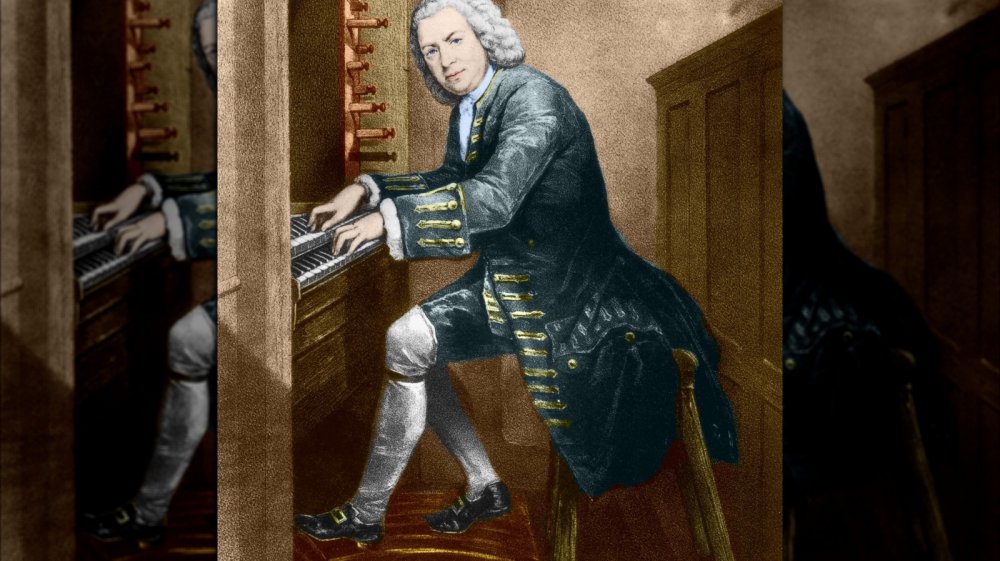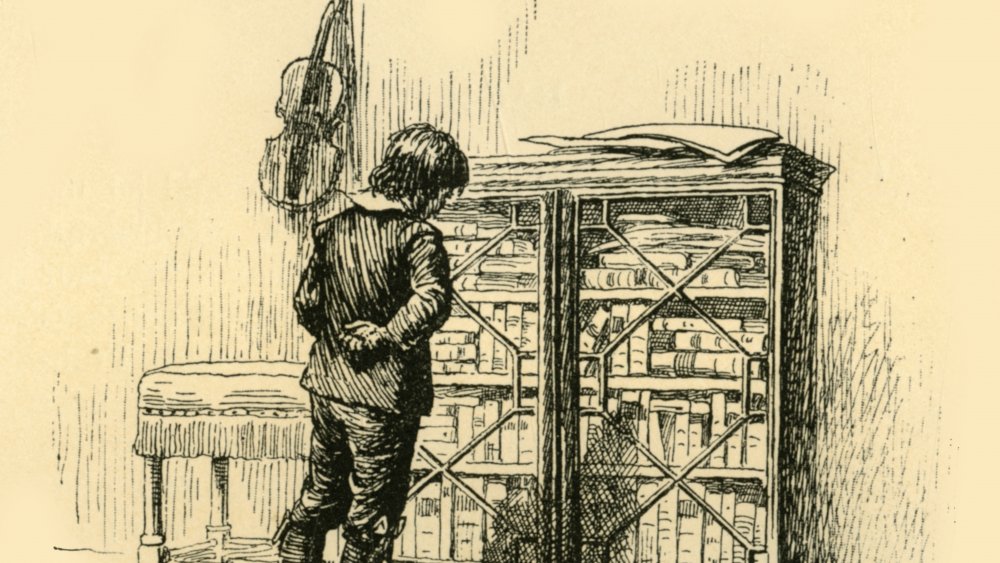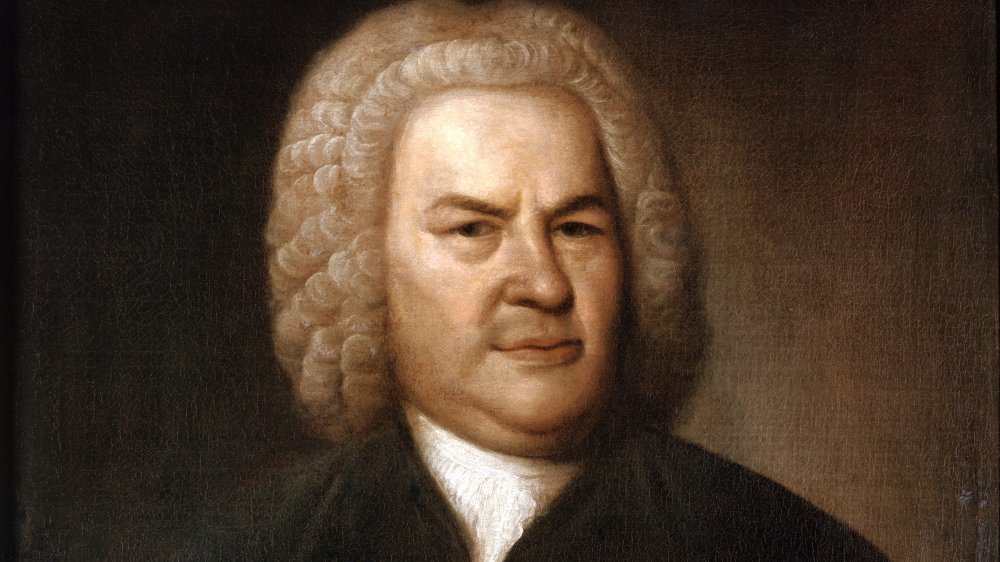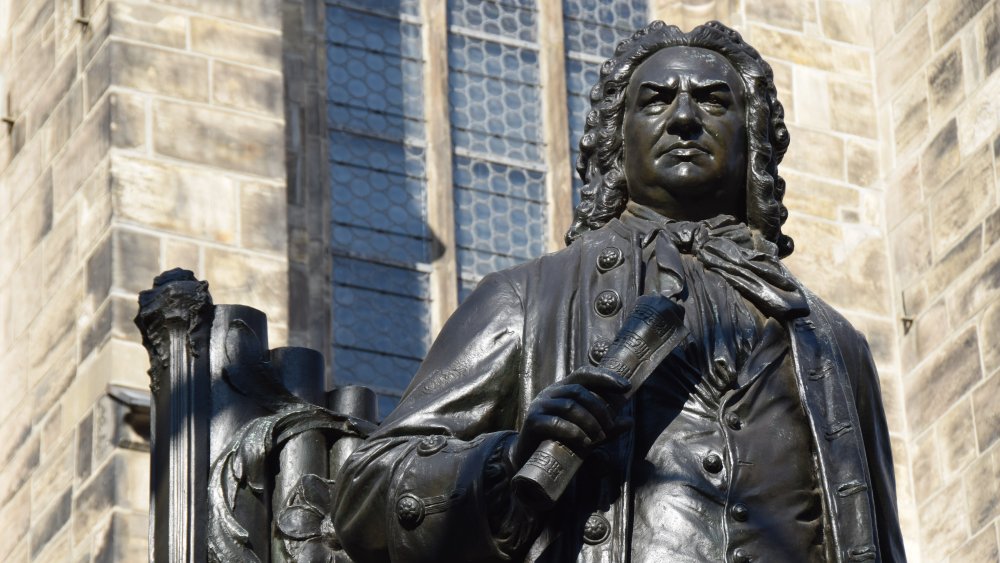The True Story Of Johann Sebastian Bach
There aren't very many names in classical music that the average layperson could rattle off the top of their head, but out of the names they could, Johann Sebastian Bach is one of them. Though, they'd probably just know him as "Bach." Bach is considered to be one of the best classical composers to have ever lived, right next to Mozart and Beethoven. If you've ever taken piano lessons or played in a high school orchestra, you've likely been exposed to his work. It would be hard not to.
Bach was a true master of music. He'd excelled in all genres of music of his day, minus opera, and created the keyboard concerto, in which a piano or organ is played as the featured instrument while an orchestra functions as the accompaniment. Nowadays, we recognize Bach's greatness, but that wasn't always so. There was a time before Bach the master, and a time when Bach was forgotten. A difficult thing to do for a man whose life was nearly as interesting as his music.
Music was in Johann Sebastian Bach's blood. It wasn't just his destiny, it was his DNA. Bach's father, Johann Ambrosius Bach, was a professional string musician who was employed by a city and a royal court. The Bach family was a musical dynasty that ranged several generations before and several after Johann Sebastian. According to Britannica, Bach traced his genealogy to find that his great-great-grandfather was the start of music in his family.
Bach wasn't the only musician in the family
The man was a baker who would bring his cittern (kind of a very large mandolin) into the mill and play for the employees in the same way that annoying kid at the party can't resist playing "Wonderwall."
After Bach's parents died, he was raised by his eldest brother. That brother, Johann Christoph Bach, was taught to play the organ by the composer Johann Pachelbel. Johann Christoph taught Johann Sebastian how to play around the turn of the 18th Century, which set him off on a long journey to become one of the world's best composers. (If this story has taught you anything, it's probably that everyone in 18th-Century Germany was named "Johann.")
Johann Sebastian Bach's musical pilgrimage has gone down in history as one of the most ridiculous things a human being has ever willingly set out to do, right next to Forest Gump running across the country. But unlike Gump's fictional run, Back actually walked between 260-280 miles, to Lübeck, in 1705, according to Gresham College. He was off to visit with and possibly study under one of the greatest organ composers of all time, Dieterich Buxtehude. One of Bach's hopes when taking his pilgrimage was to succeed Buxtehude as the organist for St. Mary's Church in Lübeck. There was a problem, however.
The future composer walked over 250 miles on a musical pilgrimage
In order to gain said position, Bach would've had to marry one of Buxtehude's daughters, and he had his sights set on someone else. Not that the experience would help Bach become a hero to lovers of classical music, but you'd think after walking so far, he'd do anything to achieve his dream. Nay. Bach turned down the position and ended up marrying his cousin (which wasn't unusual in those days), Maria Barbara Bach, instead, according to Musician Academy Online.
Johann Sebastian was kind of a bad boy for his time. In 1708, shortly after his pilgrimage, he went to work for Duke Wilhelm Ernst of Saxe-Weimar as a chamber musician. That's the big time: court musician. But it wasn't the position he wanted. Eight years after getting the gig, a better position opened up after a fellow musician died. Bach petitioned for this job but was turned down, according to Classic FM. Bach tried to resign, and work for Prince Leopold of Cöthen instead, but the duke refused to release Bach.
According to Music Academy Online, Bach protested by refusing to produce the work he was obligated to compose, and tried to quit a second time. That annoyed Duke Wilhelm something fierce, and he had Bach jailed for nearly a month. When Bach was released, the duke allowed him to go off and do his own thing. Finally.
He wouldn't reach fame until after his death
Johann Sebastian Bach was considered a decent composer in his own time, but after his death in 1750, other, more prominent and popular, composers came along, and for all intents and purposes, he was forgotten. Franz Joseph Haydn and Wolfgang Amadeus Mozart enthralled the rich and powerful of Europe, which made it hard for anyone to care about Bach. Plus, according to another Britannica article, Bach's style of composition was already considered old-fashioned. His music was left to rot for about 50 years.
It isn't that Bach was a nobody in the 18th Century. People knew about him and his music, and it's likely that he influenced other famous composers like Mozart, as well as Beethoven. But it wasn't until the 1800s that Bach reached the level of fame that he has today. By the mid-19th Century, Bach's works had been published and were readily available for musicians and scholars. These days, Bach is taught in music programs, featured on classical music stations, and played by orchestras around the world. His music is fantastic, and his life was anything but boring.



